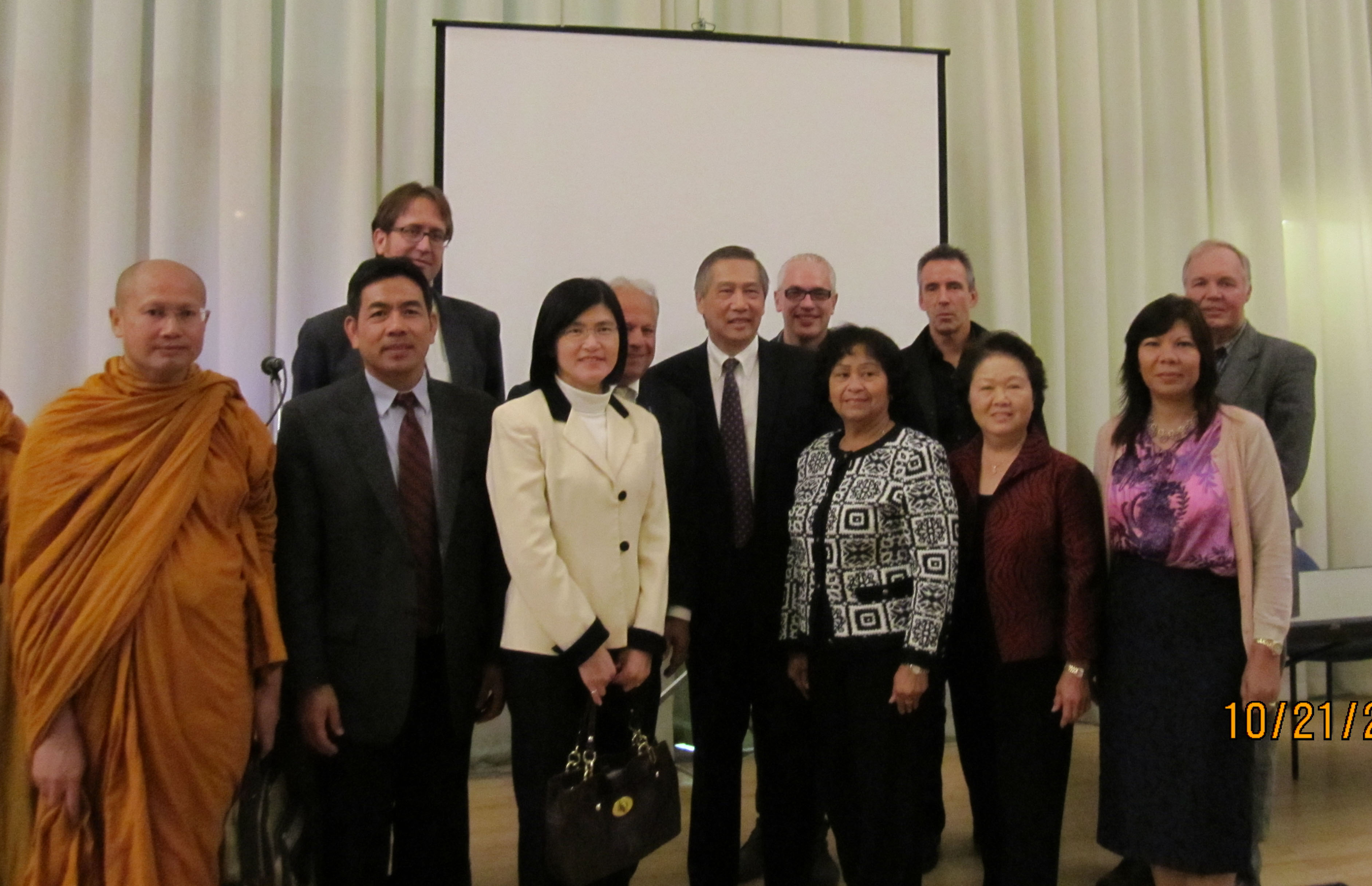Building on Karma: Discussion on the NMR Meditation Center & Global Asian Architecture with Renowned Architect Been Wang

The audience who participated in the second 2013 "Taiwan Forum" lecture co-sponsored by the Education Division of the Taipei Economic and Cultural Office in Boston and the Center for the Study of Asia at Boston University (BUCSA) on October 21 was enchanted by what seemed a magical encounter straight from a storybook. The lecture series was funded through a grant by the Ministry of Education, Republic of China (Taiwan).
The 2013 theme of BUCSA is “Asia and the City”, with a focus on how Asian cities maintain their historical identities while modernizing under Western influence. Taiwan-born architect Been Wang, Principal at Boston-based Architecture Resource Company (ARC), was invited to talk about Asian architecture in his current project, Wat Nawamintararachutis, also known as NMR Meditation Center. It is the largest Thai temple outside Thailand. Located in Raynham, a suburban town in Massachusetts, it highlights Wang’s unique experience of bringing East and West together.
Professor Joseph Harris in the Department of Sociology at Boston University who lived in Thailand for several years served as the moderator. He introduced the importance of temples in the daily lives of the Thai people and shared some slides of famous Thai temples. The Ven. Mongkol Kuakool, head Monk of the NMR Meditation Center, who was among the several monks present at the talk, blessed the audience and explained that the Center is not only a gift to honor His Majesty King Bhumibol Adulyadej of Thailand who was born in Massachusetts in 1927, but also a place where Buddhists and the general public from the community can congregate and pursue spiritual growth.
Wang graduated from Harvard University’s Graduate School of Design in 1976 and began his career as an architect in Boston, where he used “karma” to describe his participation in the NMR Meditation Center project. Brought up by a Buddhist grandmother, he is no stranger to temples, but never thought that one day he would be involved in designing and building one. The story began 12 years ago when the high priest Phra Promwachirayan, an adviser to King Adulyadej, launched the idea of building a temple in Massachusetts to honor him. Through years of effort in fund raising and site selection, he had yet to find the right architect to head the project. However, six years ago, while travelling through Boston looking for inspiration, Phra set his eyes on the Genzyme building alongside the Charles River near Harvard University. It was the work of Been Wang, and the high priest knew he had found his architect. In the past six years, from sketches to paper models to 3D graphics and thousands of miles of travel be
tween the US and Thailand, Been’s team in the US, the Thai team in Bangkok, the local Thai community, the town of Raynham, and the Thai Royal family worked together to make the project a reality.
As Wang brought the audience on a virtual tour of the complex, he explained the Asian elements and religious implications that make the temple unique. He also spoke on the project management process and building codes related to the construction of such a massive building that are very foreign to the Thai counterpart with whom they worked. The teams managed to overcome language and culture barriers, and build up mutual respect and friendship. The temple is due to be completed in the summer of 2014. The majestic Thai temple, with its green roof and white marble walls, fits nicely into the New England landscape, a true testament to the Asian architectural philosophy of “heaven and man as one”. Wang hopes that the success of this project further enhances friendship and understanding among the diverse communities of Massachusetts.
Photo: (front row from the left) The Ven. Mongkol Kuakool, head Monk of the NMR Meditation Center, Head Engineer of Thai team, Director Cynthia Huang of Education Division, TECO Boston, Dr. Been Wang, three ladies from local Thai community.
(second row from the left) Professor Joe Harris of Boston University, Mr.Joseph Milano, Consul General of Royal Thai Consulate in Boston, Professor Eugenio Menegon of BU, ARC engineer and Professor Grant Rhode of BU.
